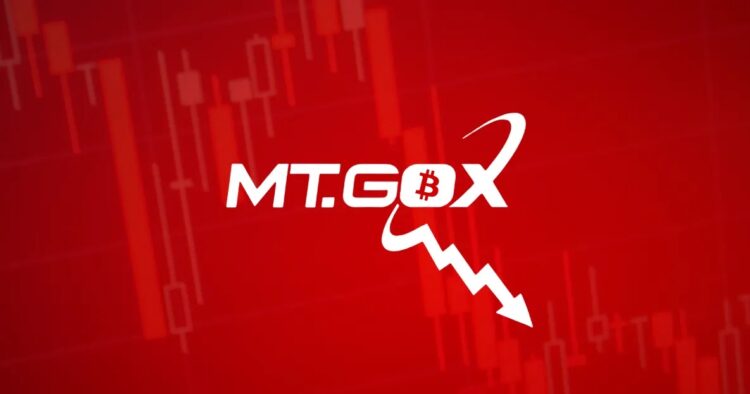The crypto community is on edge as the ongoing repayment process for victims of the Mt. Gox crash raises concerns about market stability. Nobuaki Kobayashi, the trustee overseeing the Mt. Gox bankruptcy, recently announced that repayments are being processed through crypto exchanges like Kraken, Bitstamp, BitGo, and Japan’s Bitbank.
This development has reignited fears of potential market disruptions, with traders worried that recipients may begin liquidating their holdings, causing downward pressure on prices.
Immediate Market Reaction
The selloff fears weren’t unfounded. Following the news of the upcoming Mt. Gox payouts, the crypto market fell into a sharp decline. According to Coinglass, between July 4-5, 2024, over 229,755 traders saw their positions liquidated, amounting to a staggering $639.58 million within 24 hours, with most of these being long trades.
The market reacted swiftly, with Bitcoin dropping nearly 3% to $56,571 on July 5,, eventually hitting a low of $53,513—the lowest since February 27. Ether, also suffered, falling about 5% to $2,971.68 on the same day.
Lingering Concerns
While some experts, like Brian Dixon, CEO of Off the Chain Capital, believe that many creditors will choose to hold onto their Bitcoin rather than sell, the fear of significant liquidations is tangible. The market could face substantial pressure if large amounts of Bitcoin are sold off, particularly the Bitcoin and Bitcoin Cash markets.
Eric Balchunas, a Senior ETF Analyst at Bloomberg Intelligence, has also warned that this sudden influx could reverse more than half of all ETF inflows in one go.
In contrast, Tom Lee, co-founder of Fundstrat Global Advisors, sees a silver lining. Lee suggested that clearing up the Mt. Gox situation could potentially boost the market, leading to a strong recovery later in the year. He argues that resolving the Mt. Gox issue would remove a good measure of uncertainty from the market and pave the way for renewed investor confidence and a return to growth.
The impact of these repayments is not limited to Bitcoin alone. The broader crypto market is interconnected, and significant movements in Bitcoin’s price can influence the prices of other cryptocurrencies. This interconnectedness means that the potential sell-off by Mt. Gox creditors could have ripple effects throughout the market, affecting not just Bitcoin but also altcoins and other digital assets.
The timing of these repayments is also a cause for concern. The market is currently navigating a period of heightened volatility, with macroeconomic factors such as inflation, interest rate hikes, and geopolitical tensions all contributing to an uncertain environment. The introduction of additional selling pressure from the repayments could exacerbate these existing challenges, leading to further instability in the market.
Moreover, the deadline for these repayments has been extended so many times for various reasons, primarily to accommodate more creditors. The current deadline is October 31, 2024. The extended timeline also suggests that this issue will continue to cast a shadow over the market for months to come.

The Long-Lasting Effects of the Mt. Gox Collapse
Mt. Gox’s story is like a fairytale with double meanings—it started as a trading card exchange platform, became a Bitcoin exchange in 2010, and filed for bankruptcy four years later. The exchange helped establish the crypto’s foundation but also brought a lot of negative attention that scarred the sector.
So, all the buzz isn’t just restricted to concerns about the ongoing repayment process; the infamous exchange has dealt damage to the industry’s reputation.
Increased Regulatory Scrutiny
The collapse of Mt. Gox in 2014 exposed severe vulnerabilities in the crypto market, leading to increased regulatory oversight. The loss of nearly 850,000 Bitcoins spurred regulators worldwide to enforce stricter measures, such as Know Your Customer (KYC) and Anti-Money Laundering (AML) requirements for exchanges. While these regulations aimed to curb fraud and enhance security, they also introduced challenges like increased compliance costs and restricted market access.
Heightened Focus on Security and Decentralization
The Mt. Gox collapse also underscored the dangers of relying on centralized exchanges, prompting a shift towards more secure, decentralized alternatives. Decentralized exchanges (DEXs) gained popularity as they reduce the risk of single points of failure. Additionally, the adoption of secure storage methods, like hardware wallets and multi-signature solutions, increased.
Damage to Bitcoin’s Reputation
The massive loss of Bitcoin during the Mt. Gox collapse cast a long shadow over the cryptocurrency’s reputation. Bitcoin was seen as risky and unstable, leading to skepticism and slower mainstream adoption.
Although Bitcoin has since recovered, the stigma from the Mt. Gox disaster lingers, with concerns about security and catastrophic losses still hindering broader acceptance.
Wrapping Up
The Mt. Gox collapse would always serve as a cautionary tale as its effects are still being felt today. As the crypto community watches the ongoing repayment process unfold, the next few months will be critical in determining whether the market can absorb the impact of these repayments or whether these developments will lead to further turbulence in the already volatile world of cryptocurrencies.
Disclaimer: This article is intended solely for informational purposes and should not be considered trading or investment advice. Nothing herein should be construed as financial, legal, or tax advice. Trading or investing in cryptocurrencies carries a considerable risk of financial loss. Always conduct due diligence.
If you would like to read more market analyses like this, visit DeFi Planet and follow us on Twitter, LinkedIn, Facebook, Instagram, and CoinMarketCap Community.
“Take control of your crypto portfolio with MARKETS PRO, DeFi Planet’s suite of analytics tools.”





















